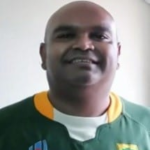(Research) A counselling line for problem and pathological gambling in South Africa
In this article, Indran Naidoo will summarize a publication titled “A counselling line for problem and pathological gambling in South Africa: Preliminary data analysis” by Heidi Sinclair, Adele Pretorius and Dan J. Stein from researchgate.net.
Gambling in any form always starts off as fun and a great way to pass your time with winning money being an added bonus. Most people set a budget and know they have to stop when they reach their limit. There are however people that can get addicted to gambling and this will cause great distress to the individual and all the people close to them. The legalisation of gambling in South Africa in 2011 has seen the rapid rise of more people joining betting companies. Pathological gambling was only recognized as an official addiction three decades ago, much later than alcohol or drug addiction. It has been found that many compulsive gamblers also have a second addiction like alcohol or drugs.
Many of the developed countries around the world have telephone support centres that can assist gamblers with their addiction. In South Africa The National Responsible Gambling Program (NRGP) telephone counselling line has been operational for the past13 years and is located at its headquarters in Cape Town. It is available 24 hours a day, 365 days a year. The 0800 line is toll-free from landlines. Counsellors are willing to call back gamblers on their mobiles so that they don’t have any added stress of paying for the call as only the landline calls are free.
Gambling addiction has no face and can affect anybody regardless of gender or race. In South Africa the majority of the callers to the NRPG are male. Of all calls received over a 6 month period, 62% of the calls were from males while the number of addicted female gamblers climbed to an all-time high of 38 %. Callers ranged in age from 18–72 years, with an average age of 37 years. 45% of the male gamblers were married and in full-time employment (76%). The most common forms of gambling were slot machines (51%), and casino games (21%). The informal gambling markets account for 9% of the callers. This type of gambling takes place in taverns and shebeens and can be more dangerous as it is unregulated.
There have been previous studies on compulsive gamblers which showed that their addiction often led to financial problems and even legal issues as many turned to fraud and other crimes to feed their addiction. One of the more disturbing trends noticed was that callers to the gambling helpline had a massively higher suicide rate than that of the normal population. The suicide rate among the pathological gamblers was 33% compared to the national average of 9.1% (Ledgerwood, Steinberg, Wu & Potenza, 2005; Cunningham-Williams et al., 2005; Barry, Potenza, Steinberg & Wu, 2008).
The results of this research also showed that it is notable that 12% of the caller’s primary motivation for dialling the counselling line was as a result of concerns about illegal activities. Indeed, 13% of female callers and 16% of male callers admitted to being involved in some form of illegal activity as a result of their gambling, consistent with the international data (Pulfordet al., 2009).
Gambling should always be fun and the moment you start thinking of it as an income, then you need to stop. If you are unable to stop contact the National Responsible Gambling Program toll free number on 0800 006 008. Remember help is just a phone call away.


Сomments
(0)